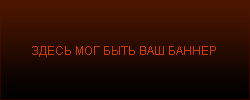Modern Rock
Modern rock is term commonly used to describe a rock music format found on commercial radio stations. Generally beginning with late 1970s punk but referring especially to any rock music of the 1980s, 1990s or 2000s, the phrase "modern rock" is used to differentiate the music from "classic rock", which focuses upon music recorded in the 1960s and 1970s. More specifically, it is usually used to describe a "radio-friendly" variation of alternative rock. Many rock radio stations now refer to their format as modern rock. Modern rock stations primarily play current artists like an active rock station would, but active rock radio stations also mix their current music with classic rock. Modern rock was solidified as a radio format in 1988 with BIllboard's creation of the Modern Rock Tracks chart. The 1988 episode of the VH1 show I Love the '80s discussed INXS, The Cure, Morrissey, Depeche Mode, and Erasure under the topic of modern rock.
Modern rock is considered by some to be a specific genre of alternative rock[1]. Many fans of alternative and indie rock criticize modern rock as being too homogenized, and merely a poor imitation of the original styles. Some indie rock fans also criticize alternative rock as being no different from modern rock, and consider both to be imitations; however, alternative rock is seen as having once been the same as indie rock, unlike modern rock, which is considered to be a product of radio airplay. Still, despite such criticisms, modern rock continues to be one of the dominant forms of rock music on mainstream radio stations. A few examples of popular modern rock radio bands are Green Day, Blink 182, Sum 41, Matchbox Twenty, Goo Goo Dolls and Linkin Park.
As alternative rock's popularity in the mainstream declined, heavy metal, nu-metal, rap metal, pop punk, emo and other commercially successful forms of rock music also became labeled as modern rock.
|












Добро пожаловать в раздел рецензий!
то вы можете высказать их по этому адресу.